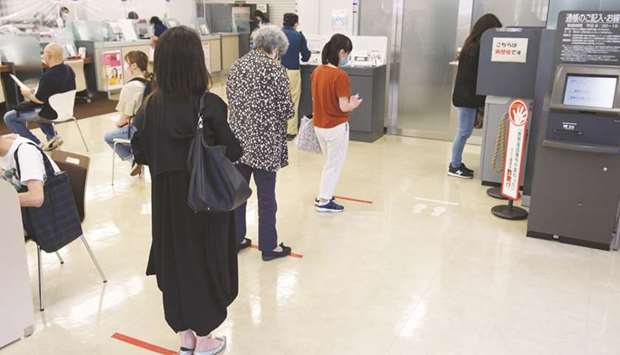Japanese Prime Minister Shinzo Abe’s ruling Liberal Democratic Party wants to make Tokyo a global centre for finance that welcomes foreign professionals, according to a policy document obtained by Bloomberg News.
Given Asia’s current geopolitical situation, Japan should make the most of its advantages such as democracy and the rule of law to establish itself as an international financial hub, the party’s policy research council said in the document.
The public and private sectors should work together to attract foreign professionals and set up support systems through services like schools and medical treatment, it said.
Tokyo Governor Yuriko Koike has long sought to re-establish the Japanese capital as a major financial centre, an idea that has resurfaced as concern over the autonomy of Hong Kong spurs professionals there to consider alternatives.
Abe also said this month he would welcome highly skilled professionals from the city.
The policy document does not specifically state Japan is seeking to lure workers from Hong Kong.
The country should prepare the environment to accept foreign fund management operations on an “emergency basis” and step up corporate governance and stewardship activity, the council said.
The LDP’s proposals on economic growth strategy are generally reflected in the government’s economic plan, drawn up in July.
Tokyo already ranks third among global finance centres after New York and London in the Global Financial Centres Index published in March.
Hong Kong fell from third place to sixth in the annual ranking.
Japan currently bars almost all foreigners from entering the country from more than 100 countries and regions in a bid to contain the spread of the coronavirus. While it is considering allowing limited work-related travel from Vietnam, Thailand, Australia and New Zealand, it is unclear when restrictions will be loosened.
The party called in the document for a gradual resumption of travel. The party council also emphasised the need for diversification of supply chains in all industries, especially in medical products, saying there should be no over-reliance on any single country.
Japan in April earmarked $2.2bn of an economic stimulus package to help its manufacturers shift production out of China as the coronavirus disrupts supply chains between the major trading partners.

Customers stand spaced apart while waiting in line at a branch of MUFG Bank, a unit of Mitsubishi UFJ Financial Group, in Tokyo.
